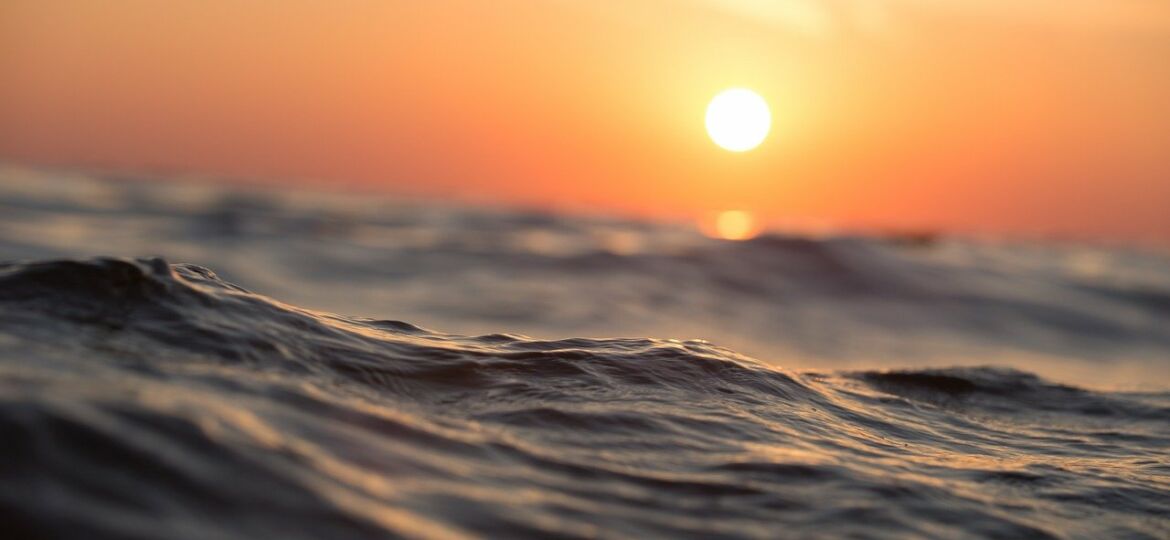
According to a recent worldwide research that identified future ocean “acoustic hotspots,” climate change could drastically alter how sound travels underwater, possibly harming natural soundscapes as well as amplifying human-generated noise. These alterations to ocean soundscapes may have an influence on marine life’s vital activities.
Sound waves propagate quicker and persist longer in warmer water before dissipating.
“We calculated the effects of temperature, depth, and salinity based on public data to model the future soundscape,” said Alice Affatati, a bioacoustics researcher at Memorial University of Newfoundland and Labrador in St. John’s, Canada, and lead author of the new study, which was published today in Earth’s Future, AGU’s journal for interdisciplinary research on our planet and its inhabitants. It is the first worldwide estimate of ocean sound speed that is connected to future climate.
According to the latest research, two hotspots in the Greenland Sea and a stretch of the northern Atlantic Ocean east of Newfoundland should anticipate the biggest change at 50 and 500 meter depths. Given ongoing high greenhouse gas emissions, the average speed of sound in these seas from the surface to depths of 500 meters (1,640 feet) is anticipated to rise by more than 1.5 percent, or around 25 meters per second (55 miles per hour), by the end of the century (RCP8.5).
“The greatest impact is projected in the Arctic, where we already know that the consequences of climate change are being amplified. Not the whole Arctic, but a particular region where these components interact to produce a signal that, according to model projections, overcomes the model’s own uncertainty “Stefano Salon, a researcher at the National Institute of Oceanography and Applied Geophysics in Trieste, Italy, wrote the paper.
The ocean soundscape is a cacophony of vibrations generated by living beings, natural events such as waves and breaking ice, as well as ship traffic and resource exploitation. At 50 meters deep, sound speed varies from 1,450 meters per second in arctic areas to 1,520 meters per second in tropical seas (3,243 to 3,400 miles per hour, respectively).
Many aquatic species communicate with one another and navigate their underwater surroundings via sound. According to the authors, changing the sound speed may affect their capacity to forage, fight, locate mates, escape predators, and migrate.
Soundscapes that change
In addition to the well-known hotspots around Greenland and in the northwestern Atlantic Ocean, the new study discovered a 1% increase in sound speed, or more than 15 meters per second, at 50 meters in the Barents Sea, northwestern Pacific, and Southern Ocean (between 0 and 70E), and 500 meters in the Arctic Ocean, Gulf of Mexico, and southern Caribbean Sea.
Temperature, pressure as depth increases, and salinity all influence how quickly and far sound travels in water. The researchers focused on hotspots where the climate signal stood out clearly from model uncertainty and was greater than seasonal variability in the current study.
The current research also replicated frequent vocalizations of the North Atlantic right whale, a critically endangered species that lives in both north Atlantic acoustic hotspots, under anticipated future circumstances. The whales’ regular “upcall” at 50 Hertz is projected to travel farther in a warmer future ocean, according to the researchers.
“We decided to focus on one megafauna species, although many trophic levels in the ocean are influenced by or utilize sound,” Affatati said. “All of these hotspots are rich in biodiversity.”
Future studies will link the global soundscape with other maps of human effects in the seas to identify locations of coupled stressors and focus required observational research.
“Combining multiple methodologies is the way to deal with challenging issues like climate change,” said author Chiara Scaini, an environmental engineer at the National Institute of Oceanography and Applied Geophysics.


